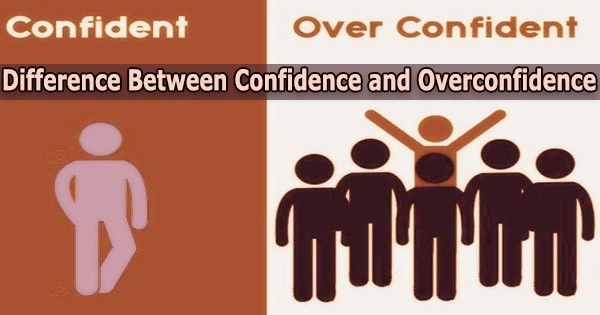People are able to find a good balance between too little and too much confidence when they have a realistic assessment of their talents. Too little confidence can prevent people from taking risks and seizing opportunities in school, at work, or in their social life. People often confuse overconfidence with confidence but there is a thin line separating the two.
Confidence is when we feel sure about our actions and make the right decisions. We believe in our ability to do something and have faith in ourselves. On the other hand, overconfidence is excessive belief in our abilities, overlooking the fact that we can be wrong too.
Confidence refers to a feeling of assurance or certainty in one’s abilities, decisions, or judgments. It can be a positive attribute that can help us achieve our goals and tackle challenges with a sense of self-assurance.
However, overconfidence refers to an excessive or unwarranted belief in one’s abilities or judgments. It can lead individuals to overestimate their abilities and underestimate the difficulty of a task or situation, leading to poor decision-making and potentially negative outcomes.
What is Confidence
Confidence is the feeling of trust someone has in his or her own abilities, qualities, and judgement. In other words, confidence is the self-assurance that comes from an understanding of one’s abilities or qualities. It comes from true self-worth, pride, and belief in one’s own abilities and achievements. Confident people also possess a sense of inner calm that stems from their self-assurance.
Confidence is a personality trait irrespective of having received a formal or informal training in a field. Confidence has limited and not unlimited faith in one’s ability. Moreover, confident people are aware that they don’t know everything and are happy to learn what they don’t know. They know that they are no better or worse than others. Therefore, they have no problem listening to others and learning from them. They also don’t act superior to others and boast about themselves.
What is Overconfidence
Over estimating one’s abilities or having excessive belief in abilities is called overconfidence. Believing that only he can do the job is overconfidence. Overconfidence does not take competition into account and is not ready to accept criticism for failure. Overconfidence also encourages people to take illogical risks thereby increasing chances of great loss or damage.
Such people think that they are better at things than the reality of their skills and abilities would actually indicate. They also believe that they are better than other people; this involves comparing themselves to others regarding skill or ability and assuming (erroneously) that they are better. They may ignore the skills and abilities of others around them or show a distinct lack of interest in others. They may brag about their skills, talents and achievements and would love to talk about themselves a lot.
Overconfidence can be particularly problematic in situations where risk is involved, such as in investing or decision-making in high-pressure environments. It can also lead to a lack of preparation and a failure to consider potential negative outcomes, which can result in significant setbacks or losses.
Difference Between Confidence and Overconfidence
The main difference between overconfidence and underconfidence is the direction of the bias: Overconfidence refers to the tendency to overestimate one’s own abilities or knowledge, while underconfidence refers to the tendency to underestimate them.
Definition:
Confidence is described as the state of being sure of one’s abilities. Overconfidence is the overestimation of one’s abilities or the ability of a particular object.
Connotation:
The word confidence has a positive connotation, whereas the word overconfidence has a negative connotation.
Skills and Abilities:
Confident people have a good understanding of their skills and abilities but overconfident people overestimate their skills and abilities.
Reaction to Mistakes:
Confident people aren’t afraid to admit their mistakes and are willing to learn from their mistakes. But overconfident people rarely admit their mistakes and will try to put the blame on someone else.
Behaviour:
In addition, overconfident people often act as if they are superior to others but not confident people.
Others:
Overconfident people may be overly concerned about what others think about them, but confident people are not much concerned about others’ opinions.
Root Cause:
Overconfidence often stems from the overestimation of oneself, but confidence stems from self-assurance.
Decisions:
When one is confident, he or she can make the correct decisions, but when one is overconfident, he or she is more likely to make the wrong decisions.
Both overconfidence and underconfidence can be detrimental in different ways, and it’s important to strive for a balanced and realistic self-assessment of one’s abilities and limitations. This can help individuals make more informed decisions, set realistic goals, and achieve better outcomes in their personal and professional lives.
















